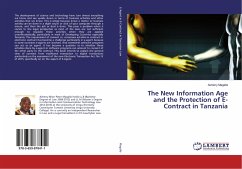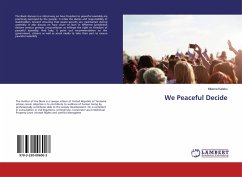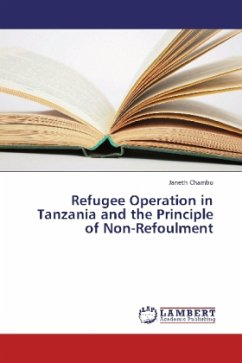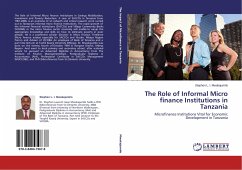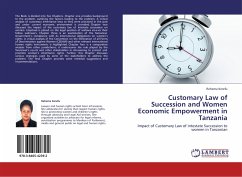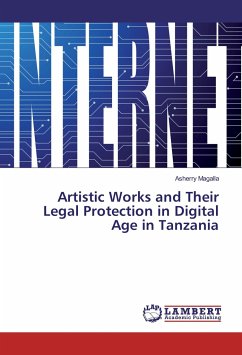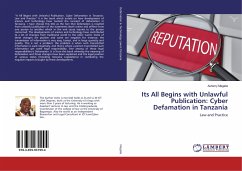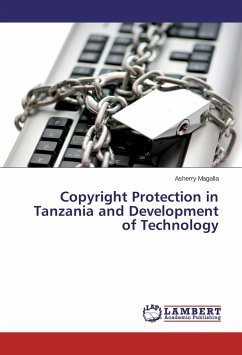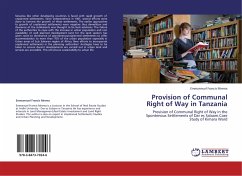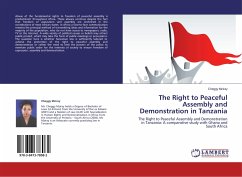
The Right to Peaceful Assembly and Demonstration in Tanzania
The Right to Peaceful Assembly and Demonstration in Tanzania: A comparative study with Ghana and South Africa
Versandkostenfrei!
Versandfertig in 6-10 Tagen
32,99 €
inkl. MwSt.

PAYBACK Punkte
16 °P sammeln!
Abuse of the fundamental rights to freedom of peaceful assembly is predominant throughout Africa. These abuses continue despite the fact that freedom of association and assembly are enshrined in the constitutions of most African states. In Africa a face-to-face communication remains the principal method of transmitting ideas and information for the majority of the population, who do not have access to newspapers, radio, TV or the Internet. A wide variety of political causes or beliefs may attract public protest, which may take the form of public meetings or processions. The question here is wh...
Abuse of the fundamental rights to freedom of peaceful assembly is predominant throughout Africa. These abuses continue despite the fact that freedom of association and assembly are enshrined in the constitutions of most African states. In Africa a face-to-face communication remains the principal method of transmitting ideas and information for the majority of the population, who do not have access to newspapers, radio, TV or the Internet. A wide variety of political causes or beliefs may attract public protest, which may take the form of public meetings or processions. The question here is whether Tanzanian law is sufficiently tailored to achieve the protection of the right to peaceful assembly and demonstration or rather the need to limit the powers of the police to maintain public order for the interests of society to ensure freedom of expression, assembly and demonstration.



